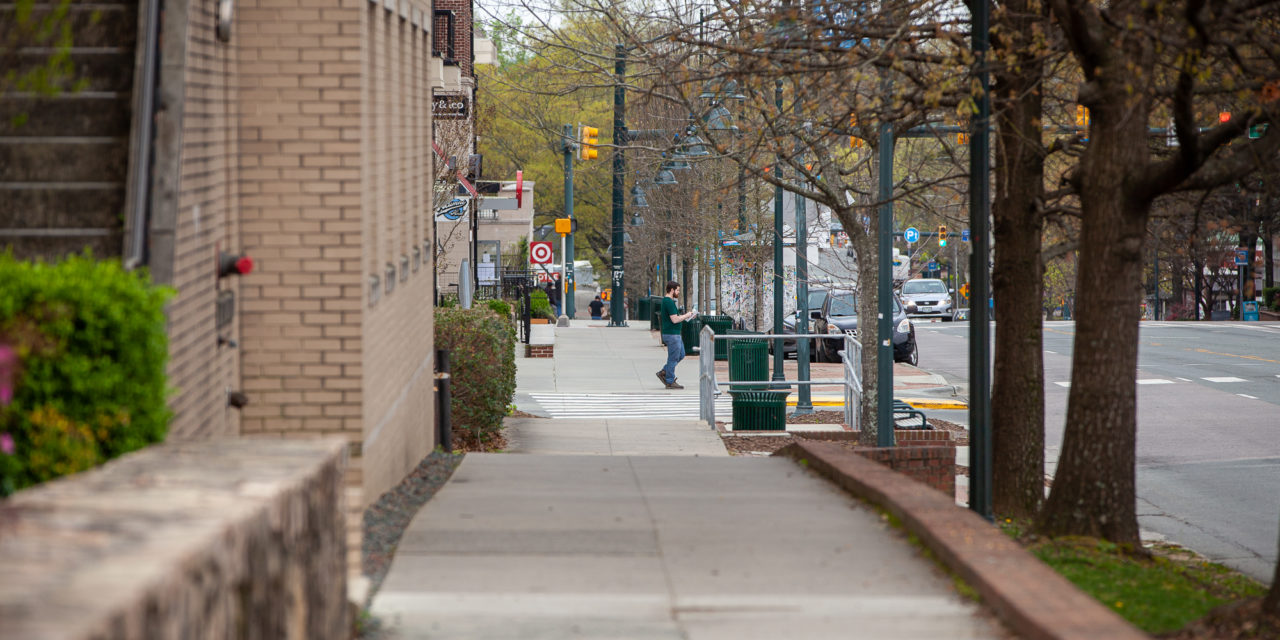As the coronavirus pandemic continues to worsen in the United States, local homeless communities become more at risk for the disease with each passing day.
One local non-profit, Hearts for the Homeless International, is looking to find innovative ways to help these people stay safe and stay healthy.
The treasurer of Hearts for the Homeless, Kayla Ferro, recently talked with 97.9 The Hill’s Aaron Keck about the measures her organization is taking during this difficult time.
Because the main focus of Hearts for the Homeless, which just started its Chapel Hill chapter back in December, is on health issues, it’s partnered with the Interfaith Council for Social Service and the Student Health Action Committee to help the homeless have access to resources like shelters and meals.
Hearts for the Homeless typically does weekly blood pressure screenings, and educates people on their results before connecting them to other resources.
They have helped around 90 homeless individuals in Chapel Hill according to Ferro, while serving over 3,000 across the United States as a whole.
Ferro mentioned she and other members of the organization have gone out and distributed information packets along with bars of soap and water in an effort to educate the homeless community about the pandemic.
One thing she noticed when doing so was there were some homeless people who had no idea what was going on in relation to the coronavirus.
For those who were already informed, though, the overwhelming feeling Ferro gets from speaking with them is one of fear and uncertainty.
“One individual I spoke to who is experiencing homelessness in the community, she was just nervous about the unstable conditions that are going to be facing her,” Ferro said. “She is already stressed being homeless, then add this on top and she doesn’t know if she can get in the shelter every night. Or if she can get access to a meal every night. I think just the nerves of the unknown is what’s stressing everyone out along with the rest of the community.”
Ferro also mentioned that her organization is currently working on a prototype for portable handwashing stations. This would allow the homeless to disinfect themselves prior to eating meals or entering any kind of shelter.
“Our next step is to develop these handwashing stations, and we have to purchase all the materials for those now,” Ferro said. “We’re still working on a prototype, but it would be typically like a cooler or a lot more water or some soap.”
In addition to those supplies, the organization is still actively seeking donations as well as any potential new ideas that could help get through the pandemic.
For more information on Hearts for the Homeless, visit its website.
Related Stories
‹
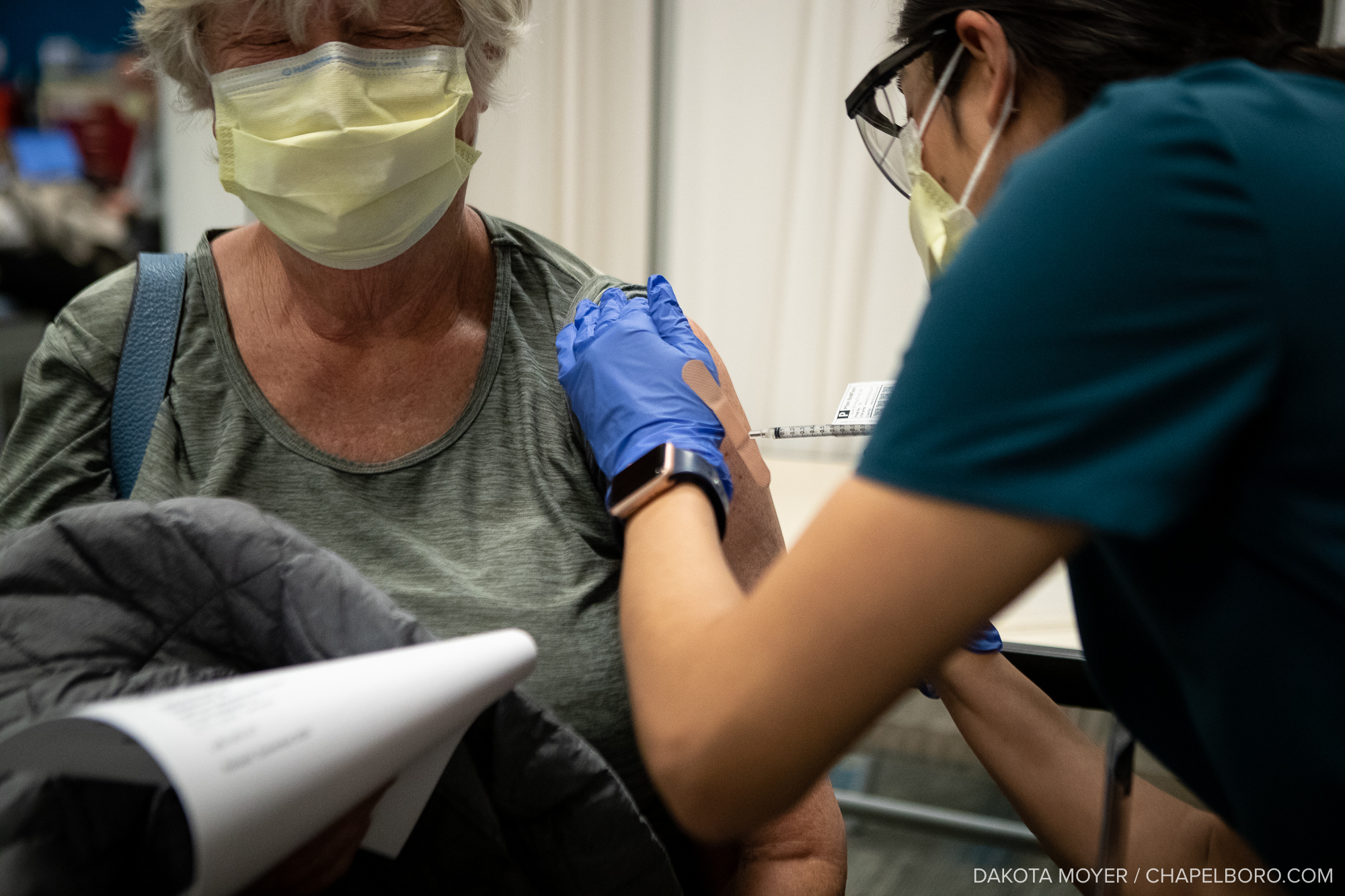
5 Things We Know and Still Don’t Know About COVID, 5 Years After It AppearedCOVID-19 is less deadly than it was in the pandemic’s early days. But the virus is evolving, meaning scientists must track it closely.
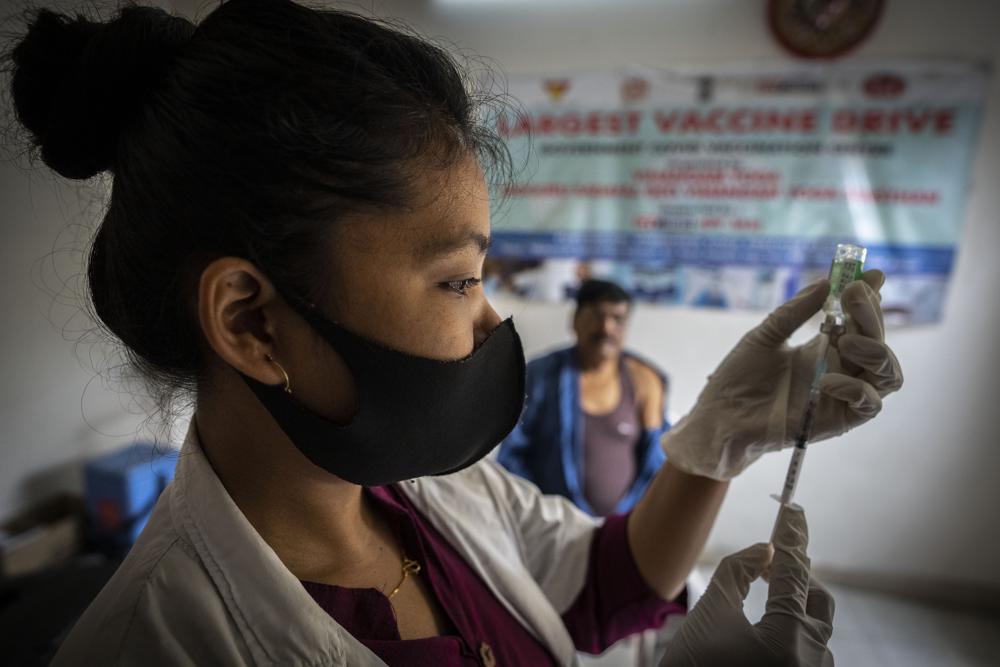
New Coronavirus Mutant Raises Concerns in India and BeyondWritten by LAURA UNGAR and ANIRUDDHA GHOSAL The quickly changing coronavirus has spawned yet another super contagious omicron mutant that’s worrying scientists as it gains ground in India and pops up in numerous other countries, including the United States. Scientists say the variant – called BA.2.75 – may be able to spread rapidly and get […]
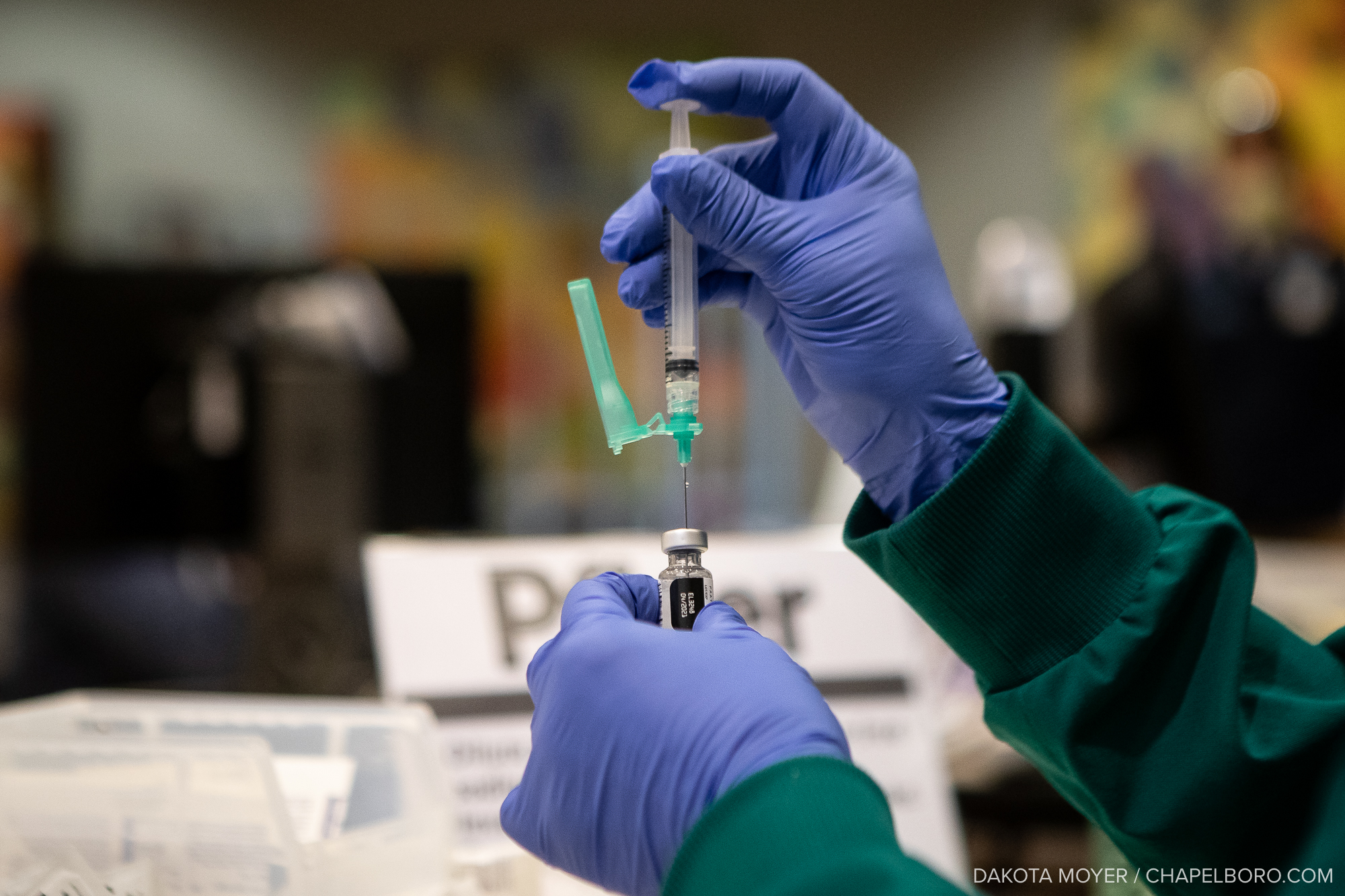
Tracking the Number of Coronavirus Cases in North Carolina 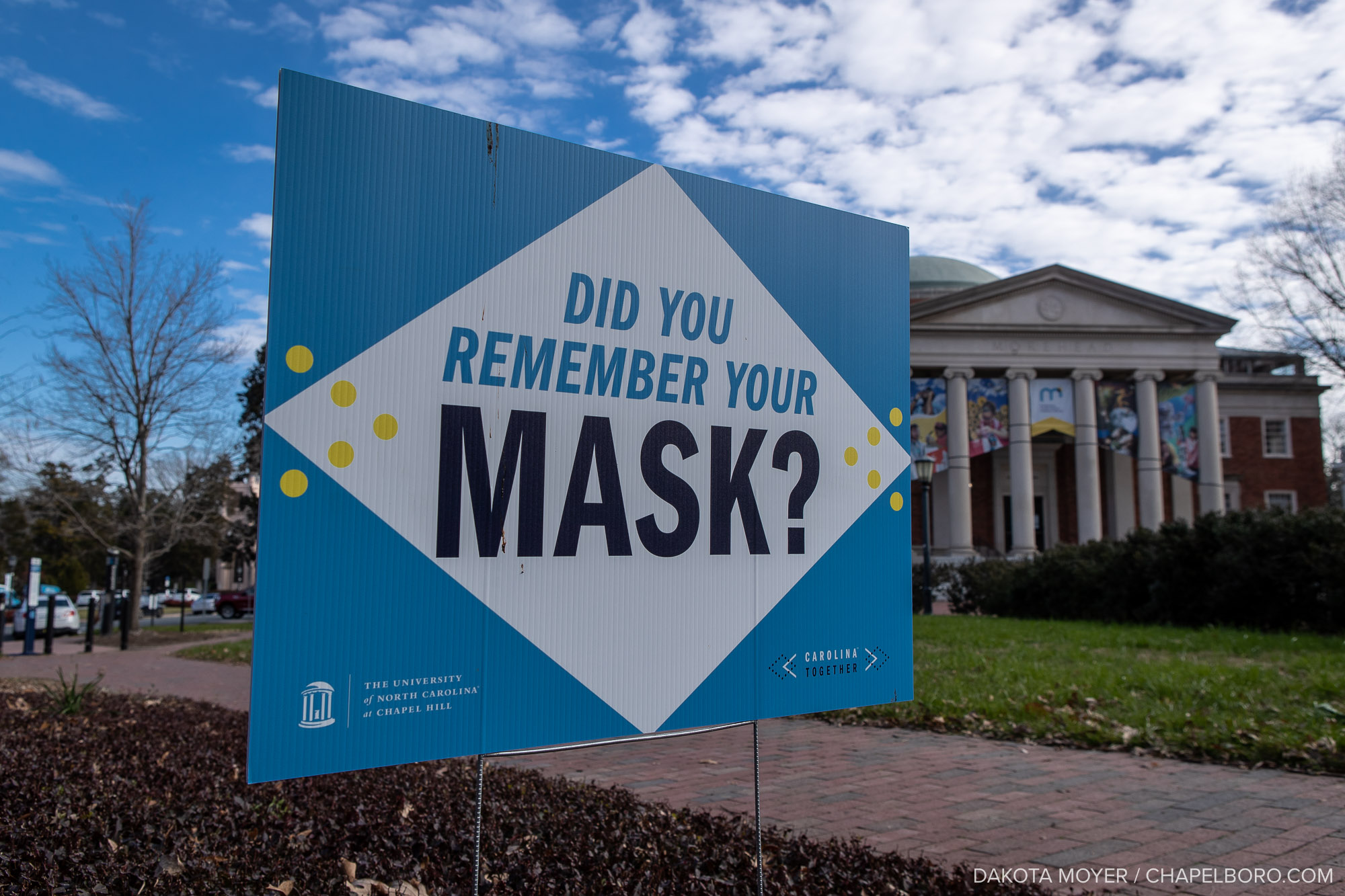
COVID-19 Cluster Reported at UNC's Avery Residence HallUNC has identified a cluster of COVID-19 cases at Avery Residence Hall on campus. This is the second COVID-19 cluster identified at UNC in 2021 and the first since the spring semester began on January 19. Earlier this month, a cluster was identified at Carmichael Residence Hall between students who lived on campus during winter […]

Mack Brown, Roy Williams Receive First Doses of the COVID-19 VaccineUNC coaches Mack Brown and Roy Williams have received their first dose of the COVID-19 vaccine, the university confirmed on Friday. “I think that everyone who has the opportunity to take the vaccination should,” Williams said in a Zoom call with reporters. Brown, 69, and Williams, 70, are eligible to receive the vaccine thanks to […]
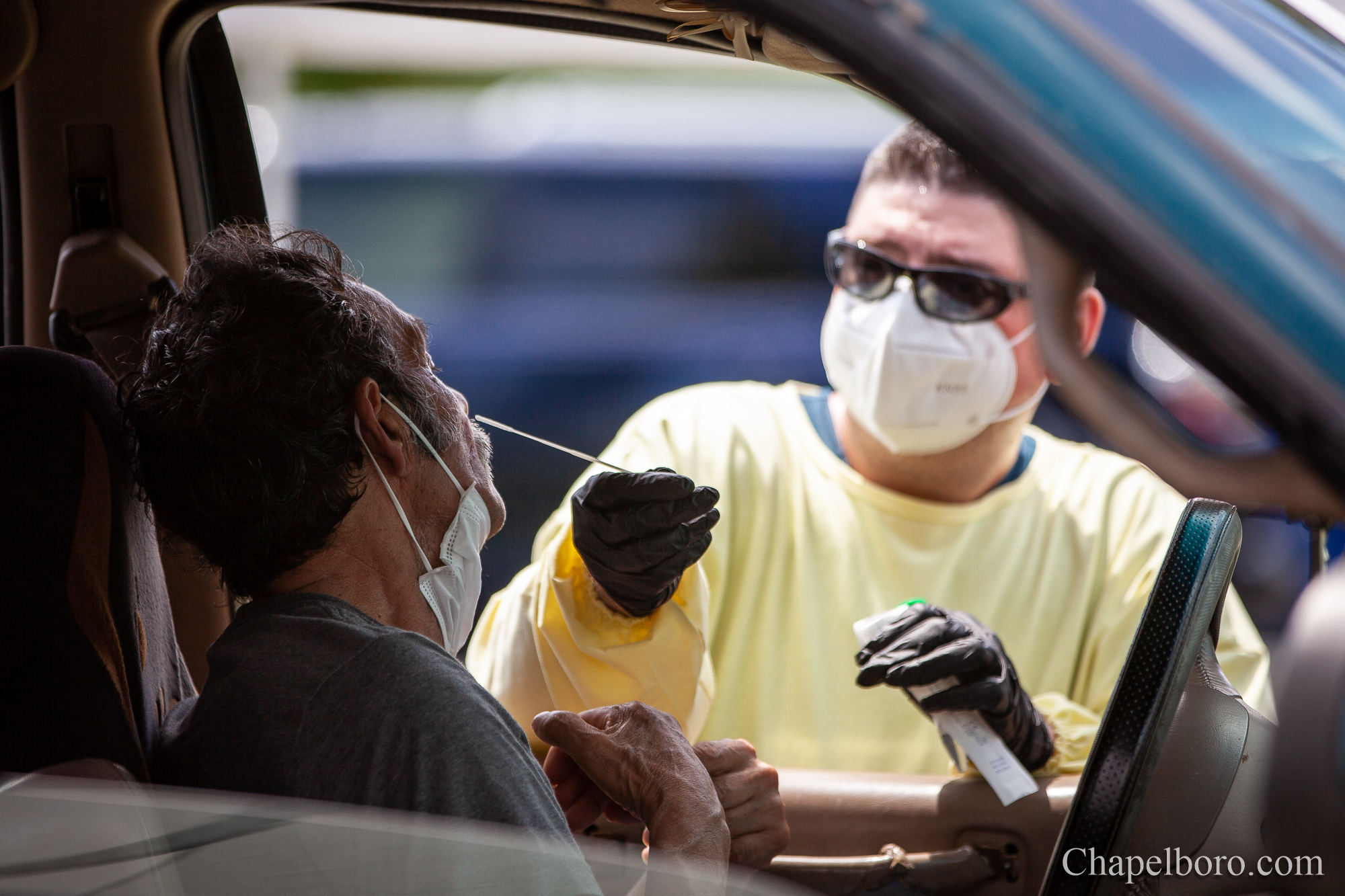
North Carolina Shatters Single-Day Record With 10,000 New COVID-19 CasesNorth Carolina reported 10,398 new coronavirus cases on Thursday, shattering the single-day record for new cases as the state continues to see a significant spread of the virus. North Carolina’s Department of Health and Human Services reports a total of 592,746 coronavirus cases since the beginning of the pandemic. In addition, the state reported 137 […]

NC Introduces COVID-19 County Alert System Amid Record HospitalizationsGovernor Cooper announced that North Carolina is introducing a county alert system to identify counties with the highest levels of COVID-19 community spread.
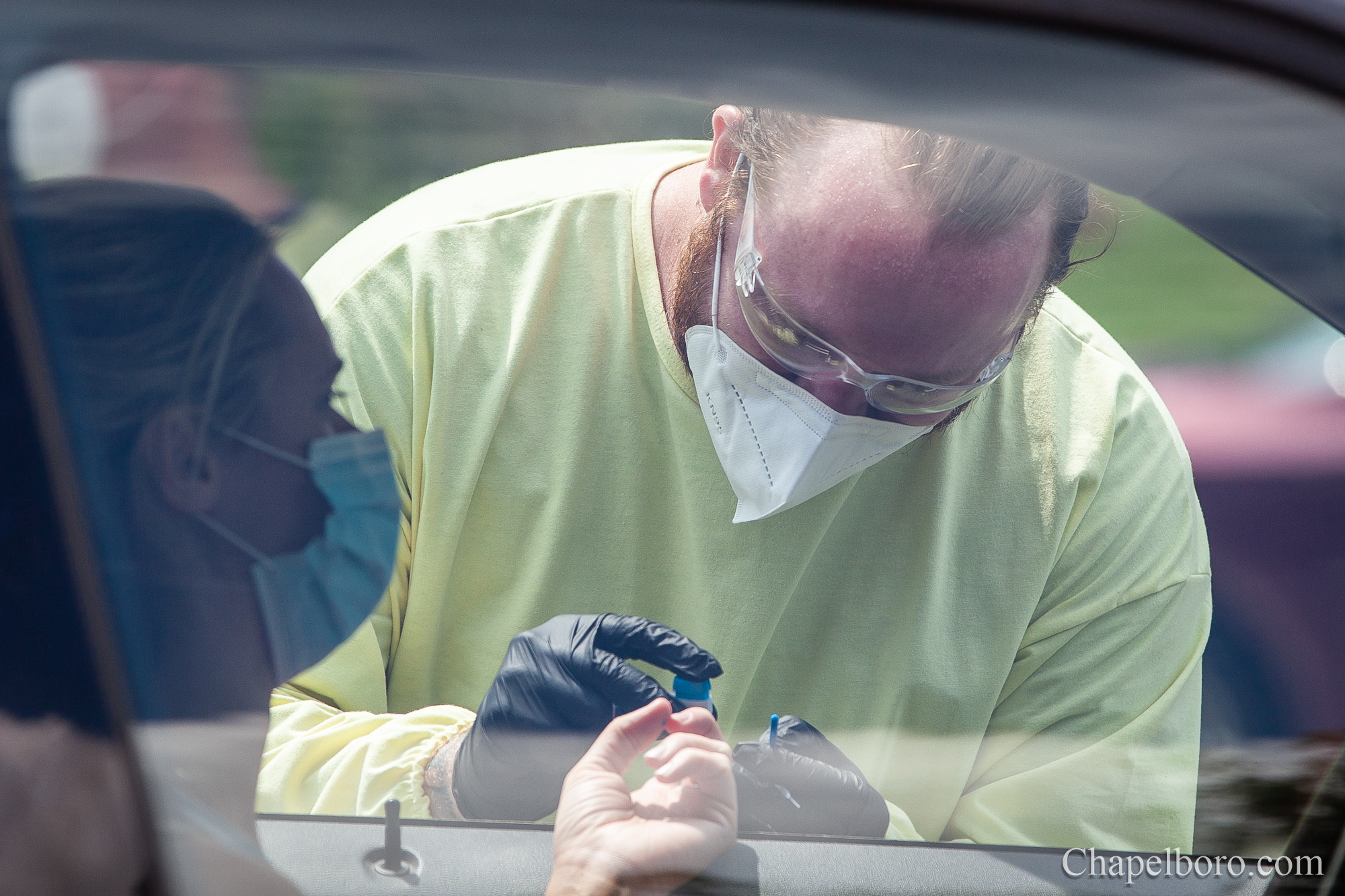
New Weekday COVID-19 Testing Available in Chapel HillA new no-cost COVID-19 testing option will now be available for Chapel Hill and Orange County residents. The Orange County Health Department announced that a new testing site will be available through OptumServe and will operate on Monday through Fridays in Chapel Hill. The testing site will be located at the R7 Parking Lot (725 Martin […]
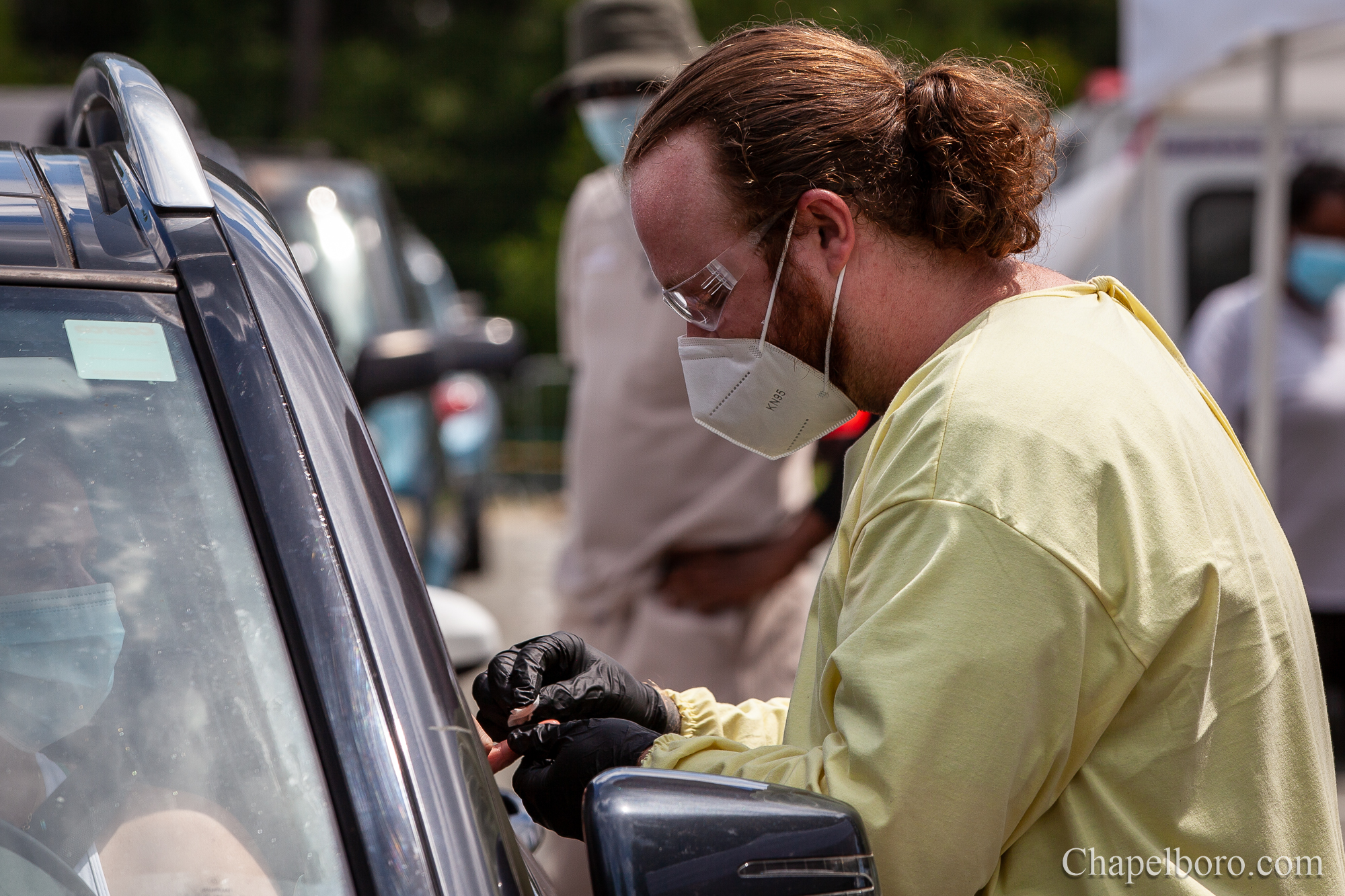
Orange County Not Hosting COVID-19 Testing on Election DayThe Orange County Health Department will not host its daily COVID-19 testing event on Election Day. The county has begun its free daily testing event — held Monday through Friday at the Whitted Building in Hillsborough from 9 a.m. to 5 p.m. However, no testing will be available on Tuesday during Election Day. WEEKDAY TESTING […]

Orange County Health Department to Offer Free Daily COVID-19 TestsBeginning next week, the Orange County Health Department will offer free COVID-19 tests to all residents who need one. Tests will be available at the Whitted Human Services Building (300 West Tryon Street, Hillsborough) from 9 a.m. to 5 p.m. each day beginning on Monday, October 26. The only day when tests will not be […]
›

